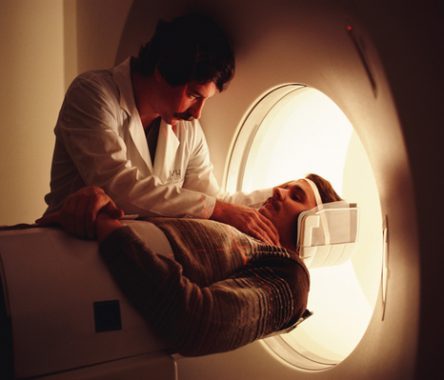Giving GPs direct access to CT scans for lung cancer halved waiting times

GPs referring patients with suspected lung cancer straight for a CT scan have halved waiting times and resulted in ‘very significant cost savings’ at a London hospital trust.
Royal Free London NHS Foundation Trust changed its lung cancer pathway last April, resulting in patients waiting an average of 29 days between referral and treatment – a drop from the 66 days they had to wait previously when sent via an outpatient clinic.
In addition, patients with negative results are now being given the all clear in just 12 days – down from 22 days.
Recent trust board papers show the organisation estimates it may have saved around £50,000 as a result of fewer additional clinics having to be arranged under the new approach.
GPs have welcomed the fall in waiting times but raised concerns that prioritisation of this pathway could be ‘at the expense of other referrals’.
This comes after Pulse revealed last month that more cancer patients in England are being diagnosed at an earlier stage and fewer are presenting for the first time as an emergency, which experts have attributed to increased vigilance among GPs.
According to Royal Free London NHS Foundation Trust board papers, its previous lung cancer pathway had been ‘complex, with a high number of referrals’ meaning that clinics were overbooked, with limited time to provide patients the information they need.
However, in April last year it introduced changes to the pathway, meaning that ‘rather than all patients referred being seen initially at an outpatient clinic, the first step of the new pathway was for the patient to have a CT scan; following which the patient would be placed on the appropriate pathway’.
‘[This] resulted in less congested clinics allowing more time for discussions to take place with patients and had reduced the number of ad hoc (extra) clinics saving probably £50,000,’ added the papers.
A spokesperson for Royal Free London NHS Foundation trust told Pulse: ‘Changes in the pathway were born of the want and need to diagnose and treat patients with lung cancer more quickly given that survival outcomes are very poor, and quicker diagnosis can improve this…
‘Importantly, for those diagnosed with lung cancer, over the last 18 months, referral to treatment times have fallen from an average of 66 days to a recent monthly average of 29 days. The average time to which patients are informed that they do not have lung cancer following referral has been reduced from 22 days to 12 days.
‘There have been very significant cost savings in not having to organise extra target clinics. Existing clinics have been decompressed and overbooked to a much lesser extent, allowing for less waiting within clinics and more time in direct contact with lung cancer patients and their relatives and carers.’
Royal Free London NHS Foundation Trust consultant respiratory physician Dr Anant Patel said: ‘The new lung cancer pathway at the Royal Free London has significantly reduced the time it takes to diagnose patients with the disease.
‘This means we can start treatment sooner and discharge those that don’t need further follow up.’
However a spokeswoman for Londonwide LMCs said: ‘The dramatic fall in reported referral to treatment times under the lung cancer pathway is to be welcomed, but there is some concern that prioritisation of one pathway could be at the expense of other referrals.
‘Local GPs have suggested that an urgent review clinic could be helpful to ensure that waiting times do not increase for urgent non-cancer referrals falling outside the lung cancer pathway.’
Earlier this year NHS England announced ten ‘one-stop-shops’ for cancer diagnosis, aimed at patients with vague symptoms, one of which will be located at Royal Free Hospital.
Pulse October survey
Take our July 2025 survey to potentially win £1.000 worth of tokens

Visit Pulse Reference for details on 140 symptoms, including easily searchable symptoms and categories, offering you a free platform to check symptoms and receive potential diagnoses during consultations.










